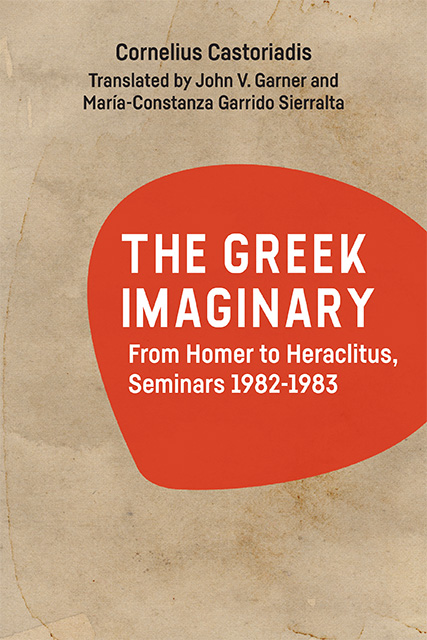XI - Seminar from February 23, 1983
Published online by Cambridge University Press: 20 October 2023
Summary
What we must constantly have in mind when we talk about ancient Greek philosophy—or ancient Greece in general, for that matter—is that this philosophy doesn’t emerge in some sort of clearing of Being but comes to light as a permanent struggle against what we may aptly call a nightmare, the nightmare of non-being, of generation and corruption, and more generally of the inconstancy of what is. This struggle, in the end, comes down to three oppositions: between what is and what appears, which we’ll speak about at length today and doubtless also next time; between opinion and truth; between nature and law, or rather physis and nomos. These oppositions should not, by the way, be kept separate, otherwise the first two become trivial. Although the third (physis/nomos) won’t be formulated explicitly until a bit later, around the middle of the fifth century, we find the first deposits much earlier, and in a sense already in Hesiod.
We spoke about Anaximander, and we saw that the fragment we were discussing can’t truly make sense unless we connect the being of beings [être des étants], or their existence, to being [être] in the sense of essence, and unless one also connects this existence with a universal, impersonal law, i.e. the chreōn that Anaximander talks about, which is a law of constant generation and corruption. This chreōn responds in this fragment to an adikia, i.e. to a hybris which in the end we’re obligated to make coincide with the very fact of existing. We’re obligated in this way because Anaximander doesn’t talk about certain beings who would be particularly unjust or in some way or other malfeasant. He doesn’t say for example that the beings who would like to persist in existence beyond the time imparted to them must pay for this exorbitant pretension; he speaks absolutely, in a universal way: all the beings, ta onta (tois ousi in the plural dative). Of course, we can also see in this assertion the first formulation of a statement that bears on the totality of beings in order to qualify it: it’s characterized by genesis and phthora and subject to chreōn.
- Type
- Chapter
- Information
- The Greek ImaginaryFrom Homer to Heraclitus, Seminars 1982-1983, pp. 179 - 200Publisher: Edinburgh University PressPrint publication year: 2023



